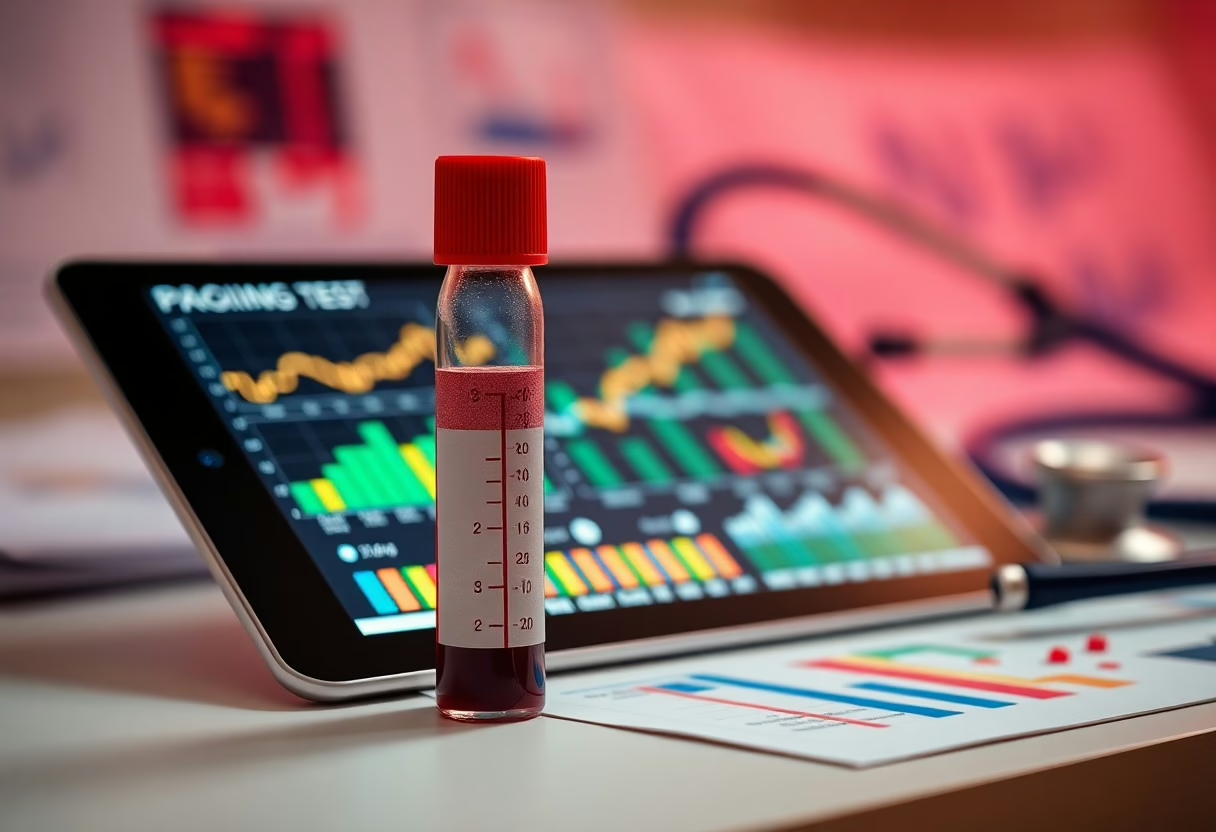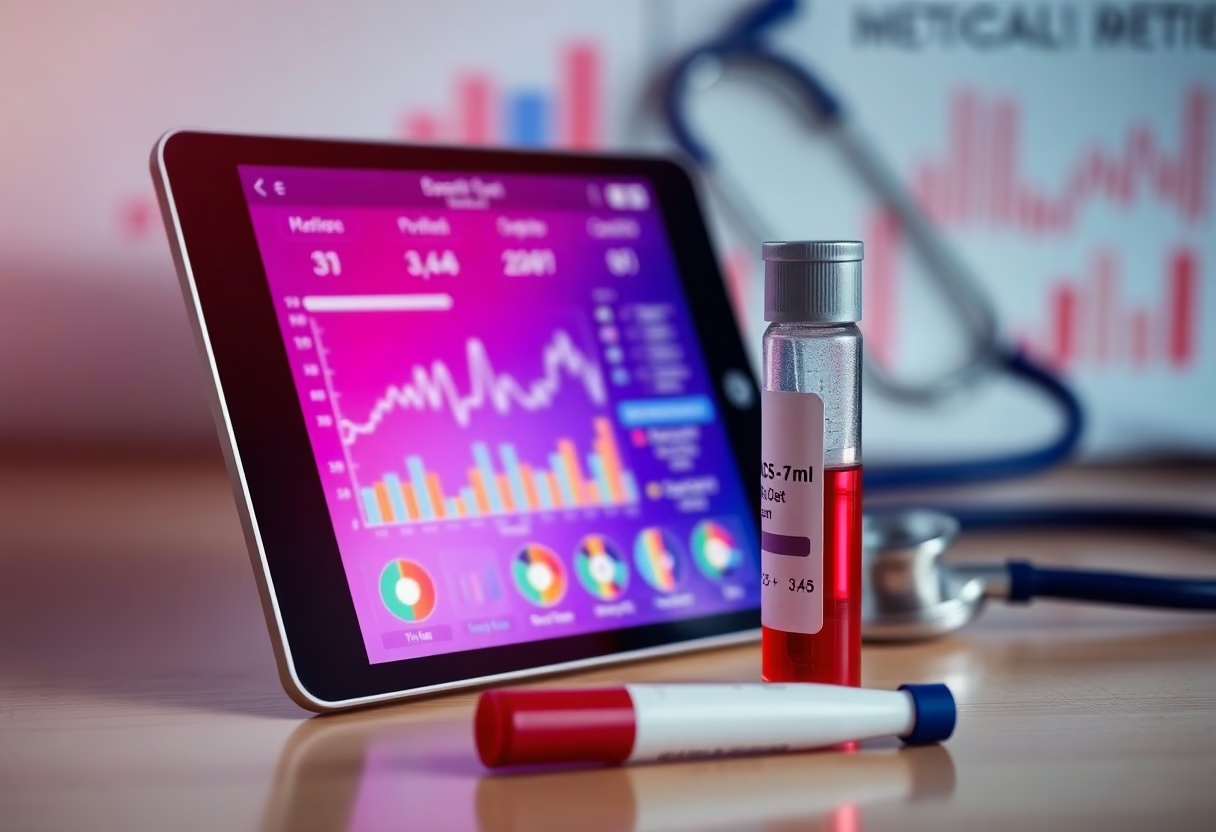Many people find blood test results confusing and overwhelming. In this comprehensive guide, I will help you decode your results, understand what each component means, and how they relate to your overall health. Whether you’re trying to navigate cholesterol levels, blood sugar readings, or other key indicators, I’ll provide you with the knowledge you need to feel empowered and informed about your health. By the end, you’ll have a clearer understanding of your blood test results and what steps you can take to improve your well-being.
Key Takeaways:
- Familiarize yourself with common blood test parameters, including complete blood count (CBC), metabolic panel, and lipid profile, to interpret your health status accurately.
- Recognize the importance of reference ranges, as results may vary based on age, gender, and laboratory standards, highlighting the need for context in understanding results.
- Consult with healthcare professionals to discuss your blood test results, as they can provide insights and recommendations tailored to your specific health needs.
Types of Blood Tests
A blood test can provide critical insights into your overall health. There are various types of blood tests, including:
- Complete Blood Count (CBC)
- Metabolic Panel
- Lipid Panel
- Thyroid Function Tests
- Blood Cultures
Perceiving the different types of blood tests can help you understand what each test evaluates and how it can impact your health.
| Type of Test | Description |
| Complete Blood Count (CBC) | Measures different components of blood. |
| Metabolic Panel | Evaluates your body’s chemical balance and metabolism. |
| Lipid Panel | Assesses cholesterol levels and heart disease risk. |
| Thyroid Function Tests | Tests thyroid hormone levels. |
| Blood Cultures | Detects infections in the blood. |
Complete Blood Count (CBC)
On a Complete Blood Count (CBC) test, I analyze various components, including red blood cells, white blood cells, and platelets. This test informs me about your overall health, enabling me to detect conditions like anemia, infections, or other blood disorders.
Metabolic Panel
Complete metabolic panels provide valuable information on your body’s metabolism, including your glucose levels, electrolytes, and kidney function. By evaluating these components, I can gain insights into how well your body is converting food into energy.
Tests often included in a metabolic panel measure substances such as creatinine and electrolyte levels, which may indicate how well your kidneys and other organs are functioning. Elevated or low levels can point to issues that need further investigation.
Lipid Panel
While a lipid panel is crucial for assessing your cholesterol levels, it also helps determine your risk for heart disease. This test measures total cholesterol, LDL, HDL, and triglycerides, providing a complete picture of your lipid profile.
It is crucial to monitor your cholesterol levels as part of your overall health management. High levels of LDL cholesterol can lead to plaque buildup in your arteries, increasing the risk of cardiovascular issues, making this test a valuable tool for preventative health care.
Thyroid Function Tests
On thyroid function tests, I evaluate hormone levels like TSH, T3, and T4, which help assess how well your thyroid is performing. These tests are significant for identifying conditions such as hypothyroidism or hyperthyroidism.
Thyroid function plays a vital role in regulating metabolism and energy levels. Abnormal levels can lead to various health issues, including fatigue, weight changes, and mood disturbances, making these tests important for understanding your well-being.

Understanding Your Results
Some of the most perplexing parts of your healthcare journey can be interpreting the results of your blood tests. It’s necessary to understand what each value indicates about your health, and how they relate to your overall well-being. By breaking down your results systematically, you can feel more empowered and informed about the next steps in your healthcare plan.
Key Components and What They Mean
Even though blood test results can seem daunting at first glance, each component has a specific role and provides valuable insights into your health. Common elements include red and white blood cell counts, hemoglobin levels, and cholesterol figures. Understanding these components will help you grasp what your results convey about your body’s current state and functioning.
Normal Ranges vs. Abnormal Results
With blood tests, it’s crucial to differentiate between normal ranges and abnormal results, as they signal different health implications. These ranges vary by lab but provide a framework for interpreting your values more effectively. It’s key to consult with your healthcare provider for personalized insights on your results.
For instance, if your cholesterol levels are higher than the normal range, it might indicate a risk for heart disease, prompting further evaluations. On the other hand, minor deviations may not always have significant implications. Understanding whether your results fall within the normal ranges helps you engage in informed discussions with your healthcare team about potential lifestyle changes or interventions necessary for maintaining your health.
Factors Influencing Blood Test Results
To accurately interpret your blood test results, it’s necessary to be aware of various factors that may influence them. Consider the following aspects:
- Diet and Hydration
- Stress and Timing
- Medications and Supplements
Any of these factors can significantly affect the outcome of your tests.
Diet and Hydration
There’s a direct connection between what you eat and drink and the results of your blood tests. For example, fasting before specific tests can lead to more reliable measurements of glucose and cholesterol levels. Furthermore, hydration can affect your blood volume and the concentration of certain substances, so it’s wise to be mindful of your fluid intake leading up to the test.
Stress and Timing
Results from blood tests can vary based on the emotional and physical stress you experience around the time of testing. Elevated stress levels can lead to changes in hormone production and blood pressure, which may skew your results. It’s advisable to aim for a relaxed state before your test, as this can help achieve more accurate readings.
Diet, sleep, and physical activity all interact with your body’s systems, meaning the timing of your blood test can significantly influence outcomes. I often recommend scheduling tests for times when you’re feeling calm and well-rested to minimize any stress-related anomalies in your results. Ensuring consistency in your routine can lead to more reliable data, allowing for better informed health decisions.
Medications and Supplements
Medications can have a profound impact on the results of your blood tests. Certain prescription and over-the-counter drugs can alter chemical levels in your blood, leading to misleading results. It’s necessary to disclose all medications and supplements you are taking to your healthcare provider in preparation for your blood test.
Another key point to consider is that some supplements can cause changes in your blood chemistry that may not be well understood. For instance, herbal supplements like St. John’s Wort can affect liver enzymes and therefore alter how medications are metabolized. Therefore, I encourage you to be transparent about your complete supplement and medication regimen for optimal interpretation of your blood test results.
Step-by-Step Guide to Preparing for a Blood Test
Once again, preparing for a blood test is imperative to ensure accurate results. By following these steps, you can make the process smoother and less stressful.
| 1. Consult Your Doctor | Discuss any medications or conditions |
| 2. Follow Fasting Guidelines | Avoid food and drink unless instructed otherwise |
| 3. Stay Hydrated | Drink plenty of water the night before |
| 4. Wear Appropriate Clothing | Choose short sleeves for easy access |
Pre-Test Instructions
To ensure the accuracy of your blood test, it’s important to follow your doctor’s pre-test instructions carefully. This may include fasting for a certain period or stopping specific medications. Always clarify any doubts with your healthcare provider.
What to Expect During the Test
There’s no need to worry; blood tests are straightforward and brief. When you arrive, a healthcare professional will greet you and explain the procedure. They will then cleanse the area, insert a needle, and collect the sample, which usually takes just a few minutes.
During the test, you may feel a small pinch or sting as the needle enters your arm, but this sensation is typically temporary. The technician will use a tourniquet to fill the vial with blood, and once they’ve finished, they will remove the needle and apply pressure to the site. After a few moments, you may be asked to apply a bandage. It’s a routine process that I’m sure you can easily handle! If you have any concerns, don’t hesitate to communicate with the healthcare professional conducting the test.
Tips for Discussing Results with Your Doctor
Despite the anxiety that can come with receiving blood test results, it’s important to approach the conversation with your doctor constructively. Here are a few tips to help you during this discussion:
- Prepare a list of your questions and concerns ahead of time.
- Take notes during the consultation to capture key points.
- Ask the doctor to explain any terms you don’t understand.
- Inquire about the implications of the results on your health.
- Discuss any lifestyle changes that may be necessary.
Knowing how to communicate effectively can empower you to make informed decisions about your health.
Questions to Ask
There’s a variety of questions I find beneficial to ask my doctor after receiving blood test results. For instance, I typically inquire about what the results indicate regarding my overall health. Additionally, I ask how these results compare to standard ranges. It’s also valuable to understand if further tests are necessary and what the next steps should be based on my unique situation.
Understanding Next Steps
Questions about your next steps after receiving test results are imperative for your well-being. Based on the findings, your doctor may suggest lifestyle changes, further diagnostic tests, or even referral to a specialist. It’s important to clarify timelines regarding any follow-up appointments and to understand the rationale behind each recommendation to ensure you’re on the right track for improved health.
Results may lead to various recommendations depending on the findings. If there are abnormal results, your doctor will likely want to run additional tests or may discuss treatment options tailored to your needs. Understanding these next steps is vital, as they can significantly shape your health journey. I’m always proactive in discussing any concerns with my doctor to align our approach to my well-being.
Pros and Cons of Common Blood Tests
Many individuals rely on blood tests to assess their health, but it’s imperative to weigh their benefits and drawbacks. Below, I’ve outlined some notable pros and cons to help you make more informed decisions about your health:
| Pros | Cons |
|---|---|
| Provides valuable insights into overall health | Can lead to unnecessary anxiety |
| Allows for early detection of diseases | May require fasting or special preparation |
| Informs treatment and management decisions | Results may be influenced by various factors |
| Non-invasive and relatively quick | Some tests may be expensive |
| Can monitor chronic conditions effectively | False positives or negatives can occur |
Advantages of Early Detection
Detection of health issues in their initial stages can greatly improve my chances of successful treatment and potentially reduce the severity of conditions. By understanding my blood test results, I can take proactive steps to address any abnormalities, leading to better overall health and quality of life.
Limitations and Risks
One should be aware that blood tests are not infallible and carry certain limitations. While they provide useful information, results may sometimes be inconclusive or misinterpreted, leading to inappropriate concerns or treatments.
Limitations in blood tests can arise from various factors, including lab errors, individual variations, and the complexity of certain diseases. It’s not uncommon for a single test to yield conflicting results, necessitating further testing for clarification. Additionally, some blood tests may not provide a complete picture of your health, which could lead to overlooking imperative factors. Always consult with your healthcare provider to understand the implications of your blood test results in the context of your overall health status.
Conclusion
Upon reflecting on ‘Understanding Blood Test Results – Your Comprehensive Guide’, I hope you now feel more confident in interpreting your blood test results. This guide has aimed to clarify the various components and what they indicate about your health. If you have further questions or need detailed information, I highly recommend exploring Blood Tests: Types, Results & How They Work. Your understanding of these tests will empower you in managing your health proactively.



